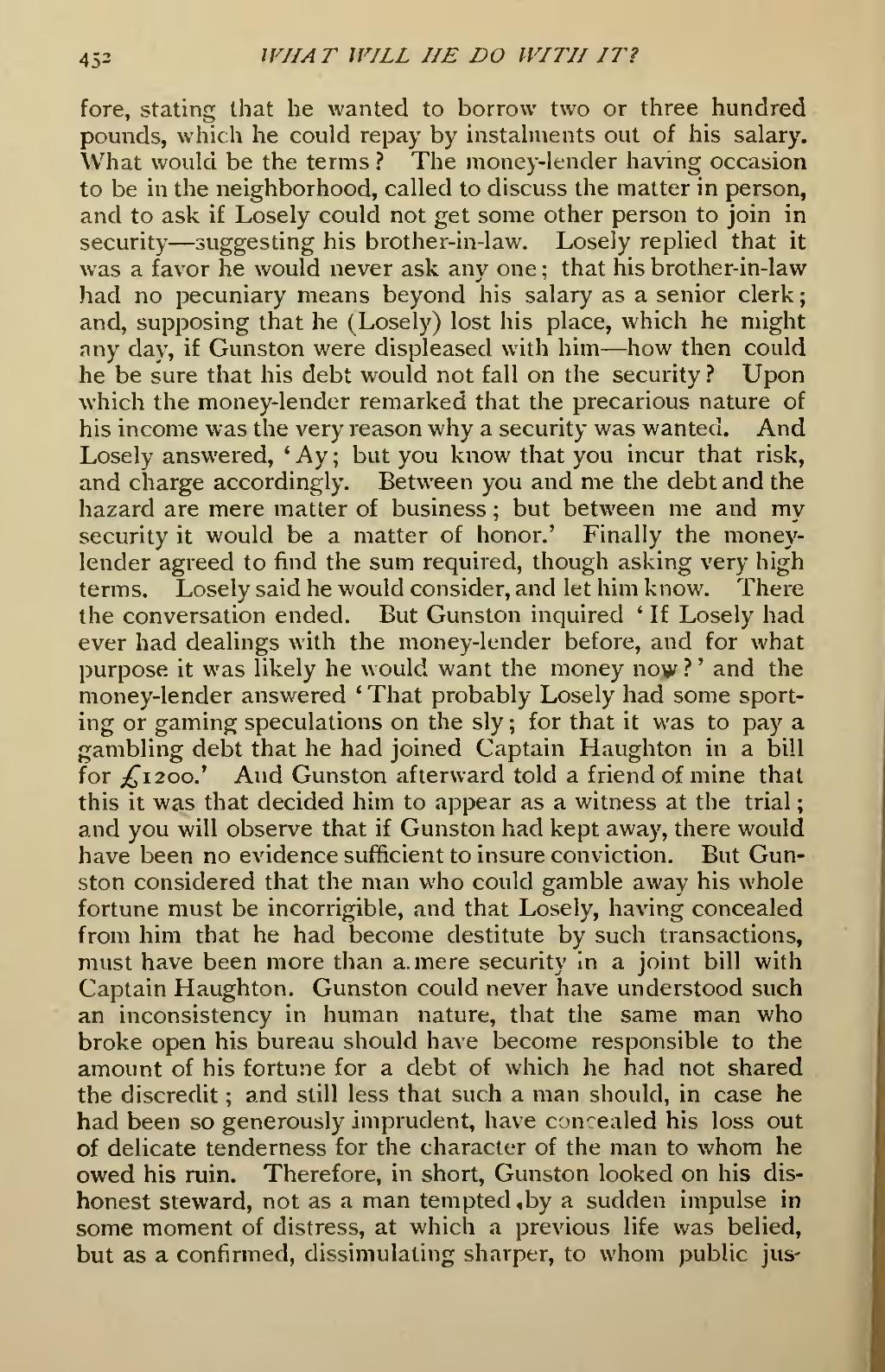fore, stating that he wanted to borrow two or three hundred pounds, which he could repay by instahiients out of his salary. What would be the terms? The money-lender having occasion to be in the neighborhood, called to discuss the matter in person, and to ask if Losely could not get some other person to join in security—suggesting his brother-in-law. Losely replied that it was a favor he would never ask any one; that his brother-in-law had no pecuniary means beyond his salary as a senior clerk; and, supposing that he (Losely) lost his place, which he might any day, if Gunston were displeased with him—how then could he be sure that his debt would not fall on the security? Upon which the money-lender remarked that the precarious nature of his income was the very reason why a security was wanted. And Losely answered, 'Ay; but you know that you incur that risk, and charge accordingly. Between you and me the debt and the hazard are mere matter of business; but between me and my security it would be a matter of honor.' Finally the money- lender agreed to find the sum required, though asking very high terms. Losely said he would consider, and let him know. There the conversation ended. But Gunston inquired ' If Losely had ever had dealings with the monej'-lender before, and for what purpose it was likely he would want the money now? ' and the money-lender answered ' That probably Losely had some sport- ing or gaming speculations on the sly; for that it was to pay a gambling debt that he had joined Captain Haughton in a bill for ^1200.' And Gunston afterward told a friend of mine that this it was that decided him to appear as a witness at the trial; and you will observe that if Gunston had kept away, there would have been no evidence sufficient to insure conviction. But Gun- ston considered that the man who could gamble away his whole fortune must be incorrigible, and that Losely, having concealed from him that he had become destitute by such transactions, must have been more than a. mere security In a joint bill with Captain Haughton. Gunston could never have understood such an inconsistency in human nature, that the same man who broke open his bureau should have become responsible to the amount of his fortune for a debt of which he had not shared the discredit; and still less that such a man should, in case he had been so generously imprudent, have concealed his loss out of delicate tenderness for the character of the man to whom he owed his ruin. Therefore, in short, Gunston looked on his dis- honest steward, not as a man tempted, by a sudden impulse in some moment of distress, at which a previous life was belied, but as a confirmed, dissimulating sharper, to whom public jus-
